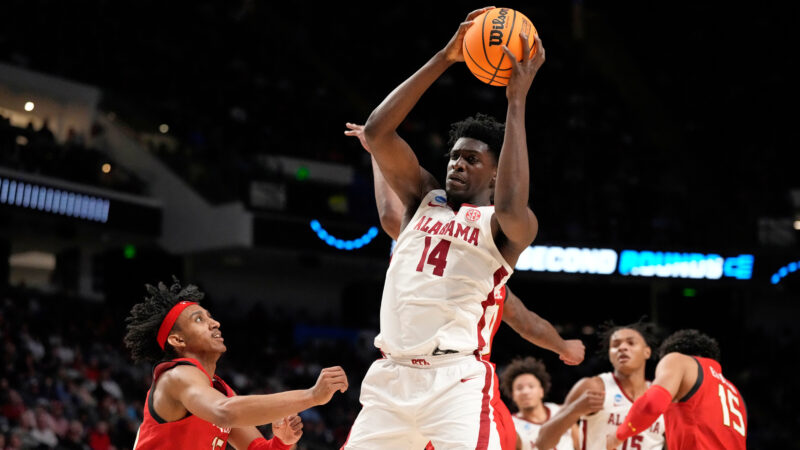What’s on the table for the 5 African Presidents meeting Trump at the White House?
LAGOS, Nigeria — The presidents of Senegal, Liberia, Guinea-Bissau, Mauritania, and Gabon are in Washington this week for a three-day mini summit hosted by President Trump — part of what the White House describes as a push to deepen “commercial opportunities” between the U.S. and African nations.
While few details have been released, senior U.S. officials say the talks reflect the Trump administration’s pivot from aid to economic partnerships on the continent. The leaders will join Trump for a White House lunch on Wednesday, followed by closed-door economic meetings through Friday.
Last month, the administration brokered a peace deal between the Democratic Republic of Congo and Rwanda — widely seen as a prelude to a rare earth minerals deal. Analysts say this week’s summit could follow suit, with the U.S. eyeing critical resources like Gabon’s manganese and uranium.
“Trump is transactional — he wants to know what these nations can offer,” said Prof. David Okoye of Nigeria’s Niger Delta University.
The summit also comes amid growing U.S. concern over China’s expanding footprint in Africa — particularly rumors that Beijing is scouting port locations along West Africa’s coast for possible military use. “The U.S. has been watching Chinese interest in places like Gabon, Guinea, and Mauritania very closely,” said Cameron Hudson of the Center for Strategic and International Studies.
China remains Africa’s top trade and investment partner and its military presence on the continent is expanding, as is Russia’s. The U.S. military has significantly reduced its presence or been pushed out of the Sahel, where it had supported counterterrorism missions for nearly two decades. Since 2020, military juntas in Burkina Faso, Mali, and Niger have expelled Western forces — including U.S. troops — and turned instead to Russia for security support.
Alongside China, India, Brazil and South Africa, Russia is a founding member of the BRICS bloc of emerging economies and has been deepening both economic and military ties across Africa.
Still, tensions over aid cuts are likely to hang over the talks. Liberia, a longtime recipient of U.S. foreign assistance, has been hit hard by Trump’s closure of USAID earlier this year. The cuts forced health centers to shut down and created critical shortages in HIV medication and contraceptives. U.S. support previously made up nearly 3% of Liberia’s national income — the highest of any country, according to the Center for Global Development.
Yet ahead of the summit, Liberia’s government sought to downplay any friction, calling the visit a chance to focus on “economic and trade opportunities over charity and aid.”
For others, the meeting is more personal. Guinea-Bissau’s President Umaro Sissoco Embaló — under fire at home for delaying elections — called Trump’s invitation a “diplomatic triumph” and cited shared leadership values.
Observers have raised eyebrows over who wasn’t invited. Nigeria, South Africa and Ghana — three of the region’s largest democracies and longtime U.S. allies — were left out. Some speculate Nigeria’s growing ties with BRICS may be to blame; President Tinubu just returned from the BRICS summit in Brazil.
Ghana, meanwhile, may have ruffled feathers after President John Mahama condemned Trump’s Oval Office ambush of South Africa’s leader in May as “an insult to all Africans.” Relations with South Africa are at an all-time low, culminating in a U.S. announcement of 30% tariff on all South African imports starting from August.
“It’s hard to tell why these five countries were picked,” said Prof. Paul Agwu of Nigeria’s University of Port Harcourt. “We’ll see what comes out of it — but I doubt it’ll be anything new.”
Malinowski concedes to Mejia in Democratic House special primary in New Jersey
With the race still too close to call, former congressman Tom Malinowski conceded to challenger Analilia Mejia in a Democratic primary to replace the seat vacated by New Jersey Gov. Mikie Sherrill.
FBI release photos and video of potential suspect in Guthrie disappearance
An armed, masked subject was caught on Nancy Guthrie's front doorbell camera one the morning she disappeared.
Reporter’s notebook: A Dutch speedskater and a U.S. influencer walk into a bar …
NPR's Rachel Treisman took a pause from watching figure skaters break records to see speed skaters break records. Plus, the surreal experience of watching backflip artist Ilia Malinin.
In Beirut, Lebanon’s cats of war find peace on university campus
The American University of Beirut has long been a haven for cats abandoned in times if war or crisis, but in recent years the feline population has grown dramatically.
Judge rules 7-foot center Charles Bediako is no longer eligible to play for Alabama
Bediako was playing under a temporary restraining order that allowed the former NBA G League player to join Alabama in the middle of the season despite questions regarding his collegiate eligibility.
American Ben Ogden wins silver, breaking 50 year medal drought for U.S. men’s cross-country skiing
Ben Ogden of Vermont skied powerfully, finishing just behind Johannes Hoesflot Klaebo of Norway. It was the first Olympic medal for a U.S. men's cross-country skier since 1976.







